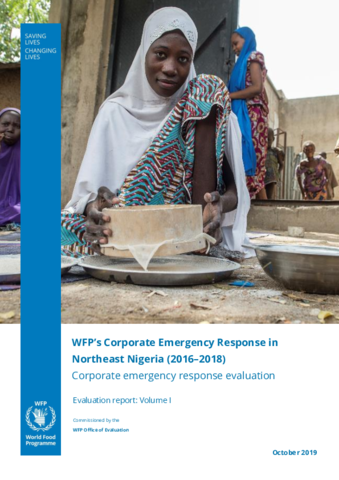
The evaluation concluded that the ability of WFP to rapidly scale up was impressive and is credibly associated with food security improvements. Effective scale-up was underpinned by the efficient recruiting of a large complement of national staff, effective supply chain and common services. WFP was slower to deliver a high-quality response, however.
The complexity and scale of the food security crisis in Northeast Nigeria requires multi-agency action. There are important opportunities to further develop and strengthen coordination and partnership approaches. Increasing attention on the role of WFP in strengthening the capacity of national institutions has not yet been matched by investment in staff capacities, resources or guidance.
Looking forward, a more robust approach is required to ensure that beneficiaries move to government support or other sustainable livelihood opportunities. Given the continuing high rates of food insecurity and the highly unpredictable security situation, life-saving assistance is a continuing priority, for which WFP needs to advocate vigorously.

